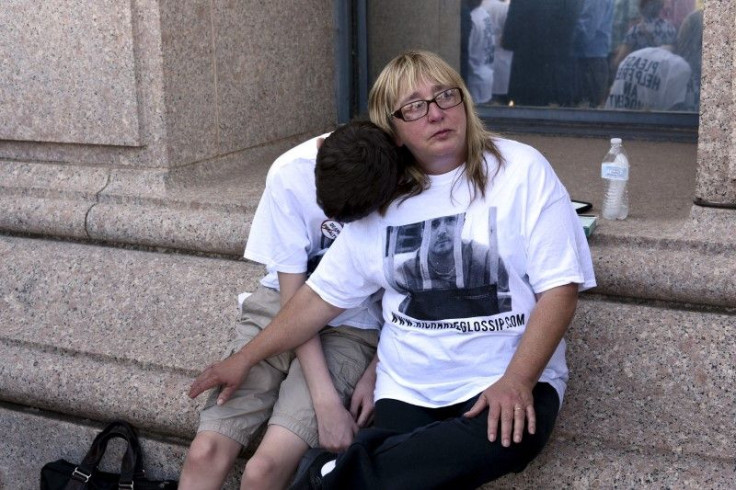Richard Glossip Execution: Oklahoma Appeals Court Orders To Carry Out Execution, Denies Evidentiary Hearing

Oklahoma’s highest criminal court ordered Monday to proceed with the execution of death row inmate Richard Glossip, after giving him a two-week reprieve over emergence of new evidence. The court said that the new evidence only “builds upon” previous evidence presented by Glossip, who claimed he was framed for a murder.
The Oklahoma Court of Criminal Appeals rejected Glossip’s plea for an evidentiary hearing and an emergency stay of execution after a 3-2 decision. The 52-year-old is scheduled to be executed Wednesday afternoon at the Oklahoma State Penitentiary in McAlester in Pittsburg County.
Mark Henricksen, one of Glossip’s attorneys, said Monday they planned to appeal the ruling to the U.S. Supreme Court, the Associated Press reported. "We anticipate filing a petition with the Supreme Court within the next 24 hours seeking a stay and further review," Henricksen said, according to the AP.
Glossip was convicted of orchestrating the fatal beating of a motel owner in 1997. He was found guilty of paying another motel worker to kill Barry Van Treese. However, he maintained that the actual killer, Justin Sneed, framed him. Sneed, who confessed to killing Van Treese and testified against Glossip, is currently serving life term in jail.
"This case splintered the Court of Criminal Appeals - a 3-2 vote. Two Judges believed a further stay of execution and a hearing on innocence was required on the facts. We should all be deeply concerned about an execution under such circumstances," Donald Knight, a lawyer for Glossip, said, according to Reuters.
Glossip’s attorneys argued that there was no physical evidence to associate him with the murder and he was mostly convicted on Sneed’s testimony. They also reportedly produced statements from jail informants who alleged that Sneed boasted of setting up Glossip.
If executed, Glossip would be the first inmate to be put to death in Oklahoma since the U.S. Supreme Court ruled in June in favor of midazolam, a sedative used in lethal injection. The Supreme Court said that the drug did not violate the U.S. Constitution's ban on cruel and unusual punishment.
Execution by lethal injection has been largely debated across the U.S. after several botched attempts. Three inmates who were executed using this method -- Dennis McGuire in Ohio, Clayton Lockett in Oklahoma and Joseph Wood in Arizona -- suffered pain during the process last year.
© Copyright IBTimes 2024. All rights reserved.






















